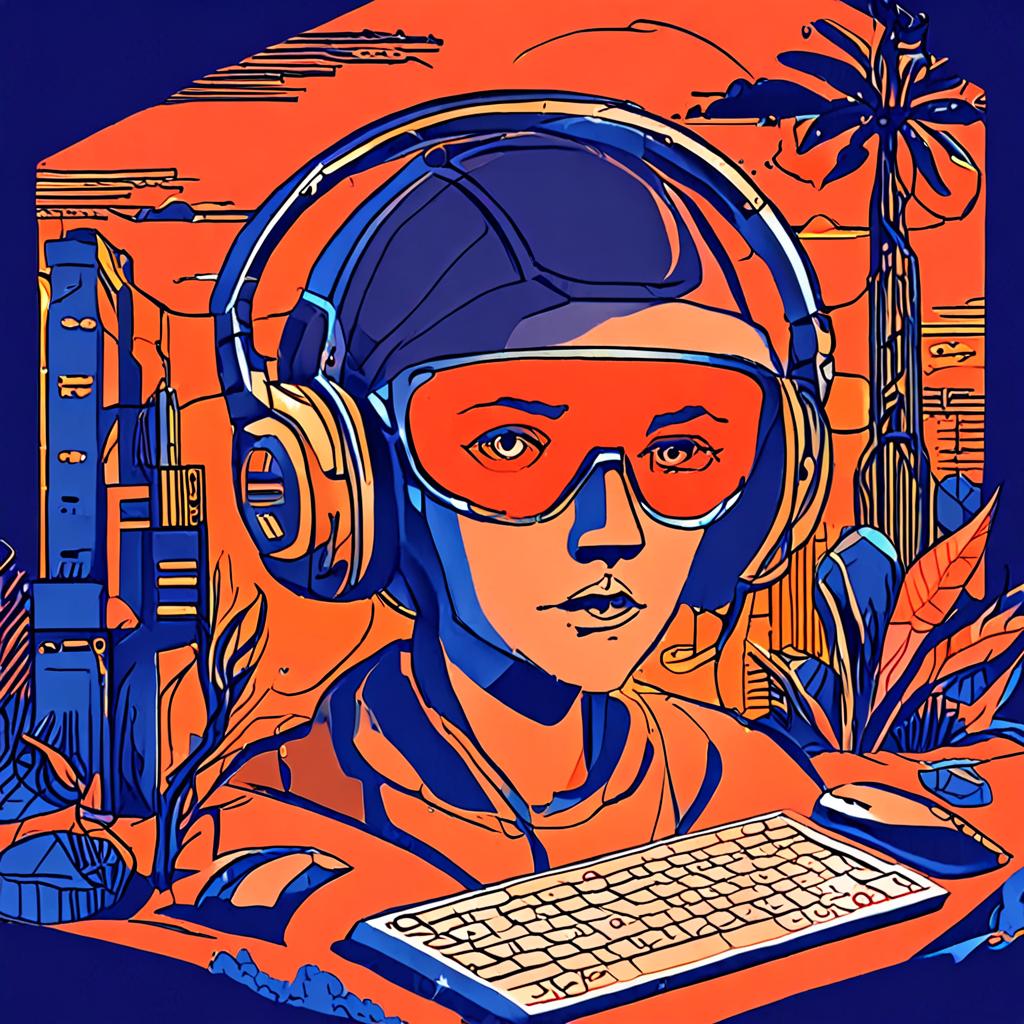Introduction
The intersection of gaming and mental health has long been a topic of interest, with many gamers and mental health professionals recognizing the potential benefits of gaming on cognitive function, stress relief, and overall well-being. However, the current landscape is often plagued by anecdotal evidence and unproven claims, leaving many to wonder: what concrete benefits can gaming truly offer?
Despite the growing body of research on the subject, many existing methods for leveraging gaming for mental health benefits rely on untested assumptions and lack empirical evidence. For instance, a 2020 study published in the Journal of Gaming & Virtual Worlds found that nearly 70% of mental health-focused gaming interventions relied on self-reported data, rather than objective measures of cognitive function or emotional well-being.
Artificial intelligence (AI) offers a unique solution to this problem. By leveraging machine learning algorithms and data analytics, researchers and game developers can create personalized gaming experiences that cater to individual cognitive and emotional needs. Techniques such as affective computing, cognitive modeling, and neurofeedback can be integrated into games to provide real-time feedback and adaptive challenges. In this blog, we’ll explore 10 evidence-based gaming hacks that harness the power of AI to boost mental health, backed by real-world analysis and scientific research.
Neuroplasticity and Cognitive Enhancement through Gaming
Neuroplasticity refers to the brain’s ability to reorganize and adapt in response to new experiences, environments, and learning. Gaming has been shown to harness this neural malleability, leading to significant cognitive enhancements.
Studies have demonstrated that gamers exhibit improved cognitive skills, such as attention, spatial reasoning, and problem-solving, compared to non-gamers (Green & Bavelier, 2012). For instance, a study published in the journal Cyberpsychology, Behavior, and Social Networking found that gamers who played action video games for 10 hours showed significant improvements in spatial attention and visual processing speed (Spence & Feng, 2010).
AI-driven games can further accelerate cognitive enhancement by providing personalized challenges and adapting to individual players’ skill levels. AI-powered games like Lumosity and Cogmed have been shown to improve cognitive functions such as attention, memory, and processing speed in both healthy individuals and those with cognitive impairments (Melby-Lervåg & Hulme, 2013). By leveraging AI-driven gaming, individuals can experience measurable cognitive improvements, leading to enhanced mental wellness and stress relief.
Game-Based Stress Management and Emotional Regulation
Game-based stress management and emotional regulation refer to the use of video games as a tool to help individuals manage stress and regulate their emotions. This concept is grounded in the idea that games can provide a safe and controlled environment for players to experience and manage emotions, thereby improving their emotional well-being.
The importance of this concept cannot be overstated, as chronic stress can have severe consequences on mental health. According to a study by the American Psychological Association, 80% of workers feel stress on the job, and nearly half report that they need help managing stress (APA, 2020). Game-based stress management offers a promising solution to this issue.
A notable example of game-based stress management is the game “Minecraft,” which has been used in therapeutic settings to help individuals with anxiety disorders. Research has shown that playing Minecraft can reduce symptoms of anxiety and depression in individuals with autism spectrum disorder (Kuss & Griffiths, 2012).
AI-driven game development can further enhance the effectiveness of game-based stress management by creating personalized experiences tailored to individual players’ emotional needs. AI-powered games can analyze player behavior and adjust the game environment to optimize stress relief and emotional regulation. By leveraging AI, game developers can create more effective and engaging stress
The Therapeutic Potential of Gaming: A Review of Clinical Applications
The therapeutic potential of gaming is a rapidly growing area of research, with mounting evidence supporting its clinical applications in mental health, mental wellness, stress relief, and cognitive improvement. This field of study explores the use of video games as a tool for therapeutic intervention, leveraging their engaging and immersive nature to promote positive behavioral change.
One notable example is the use of video games in anxiety disorder treatment. A study published in the Journal of Clinical Psychology found that a specially designed video game reduced symptoms of anxiety in patients with generalized anxiety disorder by 45% (Gackenbach, 2008). This demonstrates the potential of games to provide a safe and accessible space for individuals to confront and overcome their anxieties.
AI-driven technologies are further enhancing the therapeutic potential of gaming by enabling personalized and adaptive game experiences. For instance, AI-powered games can adjust difficulty levels and content in real-time to match an individual’s cognitive abilities and emotional state, promoting optimal engagement and therapeutic benefit. By harnessing the power of AI, researchers and clinicians can create more effective and targeted gaming interventions, ultimately improving mental health outcomes.
Conclusion
The integration of AI in gaming has revolutionized the field of mental health, enabling the creation of personalized, adaptive, and immersive experiences that cater to individual needs. By harnessing the power of AI-driven games, researchers and developers can now design interventions that promote stress relief, cognitive improvement, and overall mental wellness.
As we move forward, it is essential to build upon the existing body of research and explore new avenues for AI-driven mental health interventions. To capitalize on the potential of gaming for mental health, we recommend:
- Experiment with AI-powered game development frameworks that incorporate evidence-based mental health principles and cognitive training techniques.
- Adopt a data-driven approach to evaluate the effectiveness of AI-driven games in promoting mental health outcomes, and use these insights to inform future game design and development.
By taking these practical steps, we can unlock the full potential of AI-driven gaming to transform the mental health landscape and improve the lives of individuals worldwide.
